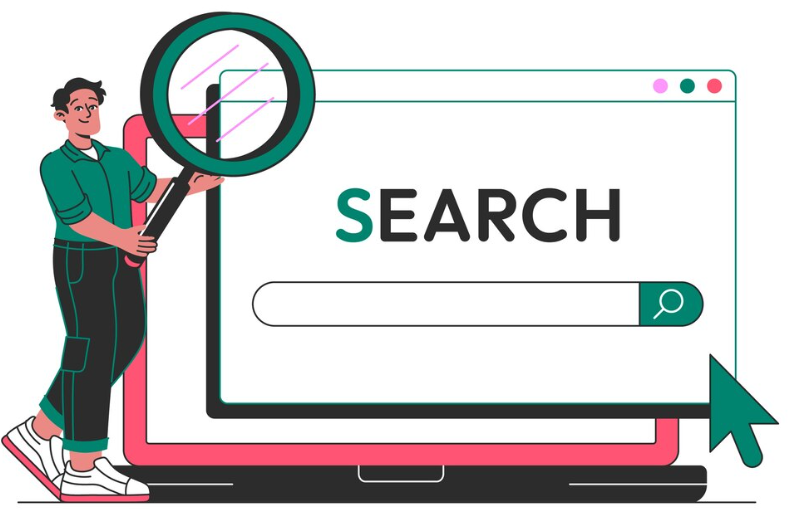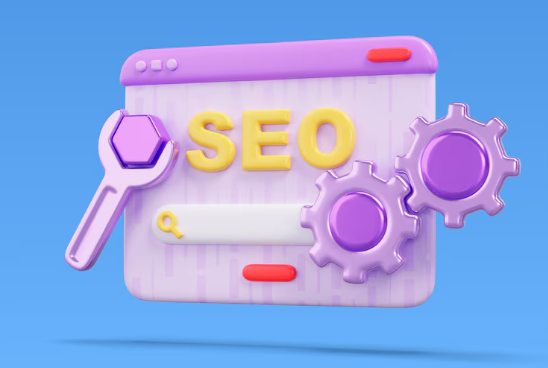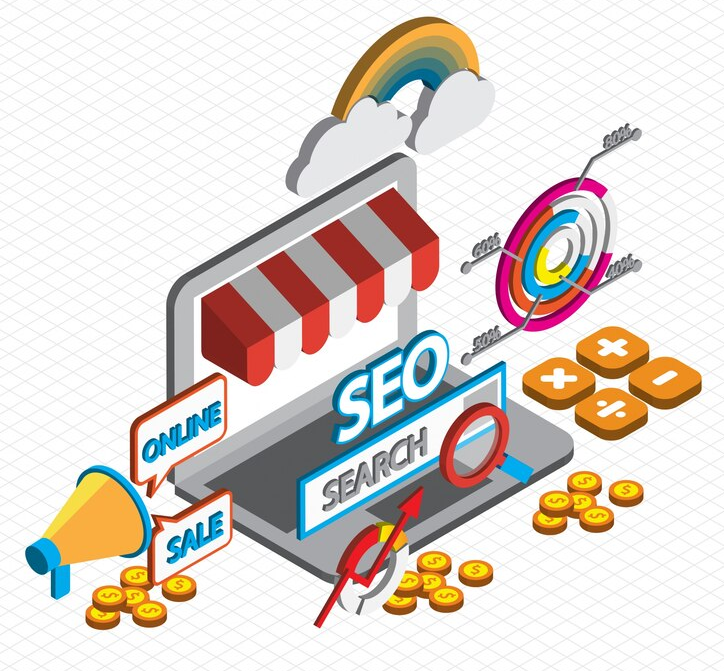In today’s digital landscape, local SEO has become one of the most essential components for any business aiming to increase its online visibility. Whether you are a global brand seeking to establish a stronger presence in specific regions or a small business hoping to dominate local search results, local SEO offers an incredible opportunity to reach your target audience effectively. However, the process can often be costly and time-consuming for businesses, especially for foreign brands seeking to optimize their online presence in various markets.
Enter Filipino SEO agencies—a cost-effective yet highly skilled solution for foreign brands looking to maximize their local SEO efforts. With a unique blend of local expertise and international proficiency, Filipino SEO professionals are helping businesses around the world achieve high-impact results on a budget.
In this blog, we’ll explore how Filipino SEO agencies support foreign brands in gaining local visibility, what makes their services cost-effective, and why the Philippines is the preferred destination for outsourcing local SEO.
How Do Filipino SEO Agencies Support Foreign Brands With Local Visibility?
Local SEO is all about increasing your visibility in local search results, ensuring that when potential customers search for your business or relevant services in their area, they can find you easily. Filipino SEO agencies have the skills and experience needed to execute powerful local SEO strategies tailored to foreign brands trying to break into new markets. Here’s how they help:
Expertise in Local Search Behavior
Each market has its own unique set of search behaviors, with users searching differently depending on their location, preferences, and culture. Filipino SEO agencies are well-versed in understanding how different regions search for products and services. This knowledge is crucial for tailoring SEO efforts that resonate with local customers, whether it’s a large metro area or a small, regional market.
- Local Keyword Research: Filipino SEO experts perform in-depth keyword research to identify terms and phrases that are most relevant to the target market. By focusing on location-based keywords, such as “best restaurants in [city]” or “top plumbing services near me,” they can help foreign brands improve their chances of ranking for local searches.
- Understanding Local Trends and Preferences: Beyond just keywords, Filipino SEO teams understand local trends, consumer behavior, and cultural nuances. This allows them to develop strategies that align with the local audience’s expectations and interests, enhancing the relevance of content and increasing engagement.
- Google My Business (GMB) Optimization: One of the most important aspects of local SEO is optimizing your Google My Business profile. Filipino SEO agencies excel in ensuring that foreign brands’ GMB listings are fully optimized with accurate business information, local reviews, and regularly updated posts to improve local visibility in search results.
Mapping Out Local SEO Strategy
Filipino SEO agencies focus on creating a strategy that targets the most relevant geographical areas for foreign brands. Whether you’re looking to improve visibility in one specific city or multiple regions within a country, Filipino teams use geotargeting tools and optimize local landing pages to ensure your brand’s message is heard in the right areas.
- Localized Content Creation: To engage local users, content must be relevant to their needs and lifestyle. Filipino agencies are experts at creating localized content that speaks directly to the target audience, ensuring it resonates with cultural nuances while maintaining relevance to the brand’s objectives.
- Local Link Building: Building quality, location-based backlinks from local directories, businesses, and media outlets is a crucial part of local SEO. Filipino agencies have an extensive network of local contacts and are skilled in securing high-quality local backlinks that enhance domain authority and improve local search rankings.
What Makes Local SEO Services In The Philippines Cost-effective For Overseas Businesses?
When foreign businesses consider outsourcing local SEO, one of the most attractive features of Filipino agencies is the cost-effectiveness they offer. SEO services in the Philippines are more affordable compared to Western countries, which can lead to substantial savings for international brands. But how exactly do Filipino SEO agencies keep costs down without sacrificing quality?
Lower Operational Costs
The Philippines boasts a lower cost of living compared to countries like the United States, the UK, and Australia. This directly translates to lower operational costs for Filipino SEO agencies, which allows them to offer high-quality services at a fraction of the price of their Western counterparts.
- Affordable Rates for Top-Notch SEO Expertise: Filipino SEO agencies can provide affordable rates for comprehensive SEO campaigns, which is highly appealing to foreign brands. These cost savings don’t come at the expense of quality. Filipino SEO professionals are highly skilled and often have years of experience working with international clients across different industries.
- Efficient Work Practices: Filipino agencies are known for their efficiency and commitment to delivering results on time. They use streamlined processes and effective project management systems to ensure that clients receive the highest value for their investment.
Scalability of Services
Filipino SEO agencies offer scalable solutions that can be adjusted based on the client’s budget and needs. Whether a company needs basic local SEO or a comprehensive, multi-location campaign, Filipino agencies can tailor their services to fit. This flexibility allows businesses to start small and scale up as they see results.
- Customizable Packages: Filipino SEO agencies understand that each brand has unique needs, so they offer a variety of packages that can be customized to fit any budget. From small businesses looking to dominate their local market to large brands seeking international recognition, there’s a solution that fits all.
- More Bang for Your Buck: Because of the lower operational costs, Filipino agencies can often provide more services at a competitive rate compared to agencies in other countries. This includes content creation, on-site optimization, link-building, and social media management—all included in a more affordable package.
How Do Foreign Companies Benefit From Hiring Filipino Teams For Local SEO Campaigns?
When foreign companies hire Filipino SEO teams, they gain access to a range of benefits that help them expand their brand’s reach in local markets. These benefits go beyond just the cost-saving advantage, making Filipino SEO agencies an attractive choice for businesses looking to grow their digital presence.
Highly Skilled Workforce
Filipino SEO professionals are well-educated, hardworking, and highly skilled. Many SEO specialists in the Philippines have extensive experience working with international clients across various industries, including healthcare, e-commerce, travel, and finance. They are also proficient in English, ensuring clear and effective communication with overseas brands.
- Expert Knowledge in Local SEO: Filipino SEO professionals are constantly updating their knowledge of local search trends, new algorithm changes, and SEO tools to ensure they deliver cutting-edge services. Their global experience ensures they understand international market dynamics while delivering localized results.
Seamless Collaboration Across Time Zones
One of the biggest challenges when outsourcing is the difference in time zones. However, Filipino SEO agencies are accustomed to working with international clients from all over the world, including the US, UK, and Australia. The Philippines’ strategic location in Southeast Asia allows for flexibility in communication and collaboration.
- Proactive Communication: Filipino SEO teams often work during hours that overlap with clients in other time zones, ensuring quick responses to any questions or issues. This proactive communication helps businesses stay informed and engaged in their SEO campaigns.
- Reliable Delivery: Filipino agencies are known for their dedication and timely delivery of results. Whether you’re working on a short-term local SEO project or an ongoing, long-term campaign, Filipino SEO agencies have the experience and work ethic to ensure that deadlines are met and goals are achieved.
Why Is The Philippines A Preferred Destination For Outsourcing Local SEO For International Brands?
The Philippines has long been known as a hub for outsourcing, and when it comes to SEO, it’s no different. More and more international brands are turning to Filipino SEO professionals to handle their local SEO campaigns. But what makes the Philippines such an attractive destination for outsourcing SEO work?
A Strong Reputation in the Global SEO Industry
Filipino SEO professionals have built a strong reputation in the global SEO industry. With experience working with clients from various countries, they have proven themselves as reliable, skilled, and highly capable in driving results across multiple markets. Many agencies in the Philippines specialize in working with international clients, giving them the experience and expertise to tackle local SEO challenges on a global scale.
Cultural Affinity with Western Markets
The Philippines has a unique cultural affinity with Western countries, particularly the United States. This cultural understanding helps Filipino SEO professionals craft marketing strategies that resonate with both local audiences and international clients. Additionally, Filipinos are known for their strong work ethic, attention to detail, and commitment to providing excellent customer service, which enhances the overall outsourcing experience.
Growing Infrastructure and Technology
The Philippines continues to invest in its infrastructure and technological capabilities, providing businesses with access to cutting-edge tools and resources. This makes it easier for Filipino agencies to stay on top of the latest SEO trends, ensuring that they can provide high-impact results for international brands.
In the competitive world of local SEO, foreign brands need every advantage they can get to ensure they’re visible in their target markets. Filipino SEO agencies offer a unique blend of cost-effectiveness, expertise, and adaptability that makes them the perfect choice for international companies looking to grow their presence in local search results.
From delivering tailored local SEO strategies to providing high-quality services at competitive rates, Filipino SEO professionals are equipped to help businesses navigate the complexities of local markets. With their proven track record, skilled workforce, and strong cultural affinity with Western brands, the Philippines continues to be the preferred destination for outsourcing local SEO services. If you’re a foreign brand looking to expand your local presence, partnering with a Filipino SEO agency is a strategic move that can deliver lasting results—on a budget.
Unlock Your Brand’s Local Potential with Expert SEO from the Philippines
Ready to dominate local search results and expand your brand’s reach? At MJM Digital Marketing, our team of skilled Filipino SEO professionals is dedicated to helping your business gain the local visibility it deserves—without breaking the bank. From tailored strategies to high-impact results, we’re here to make your local SEO campaigns a success.
Let’s work together to boost your brand’s online presence, drive more traffic, and connect with customers in the markets that matter most. Contact MJM Digital Marketing today and take the first step toward powerful, cost-effective local SEO solutions that deliver long-term growth!









